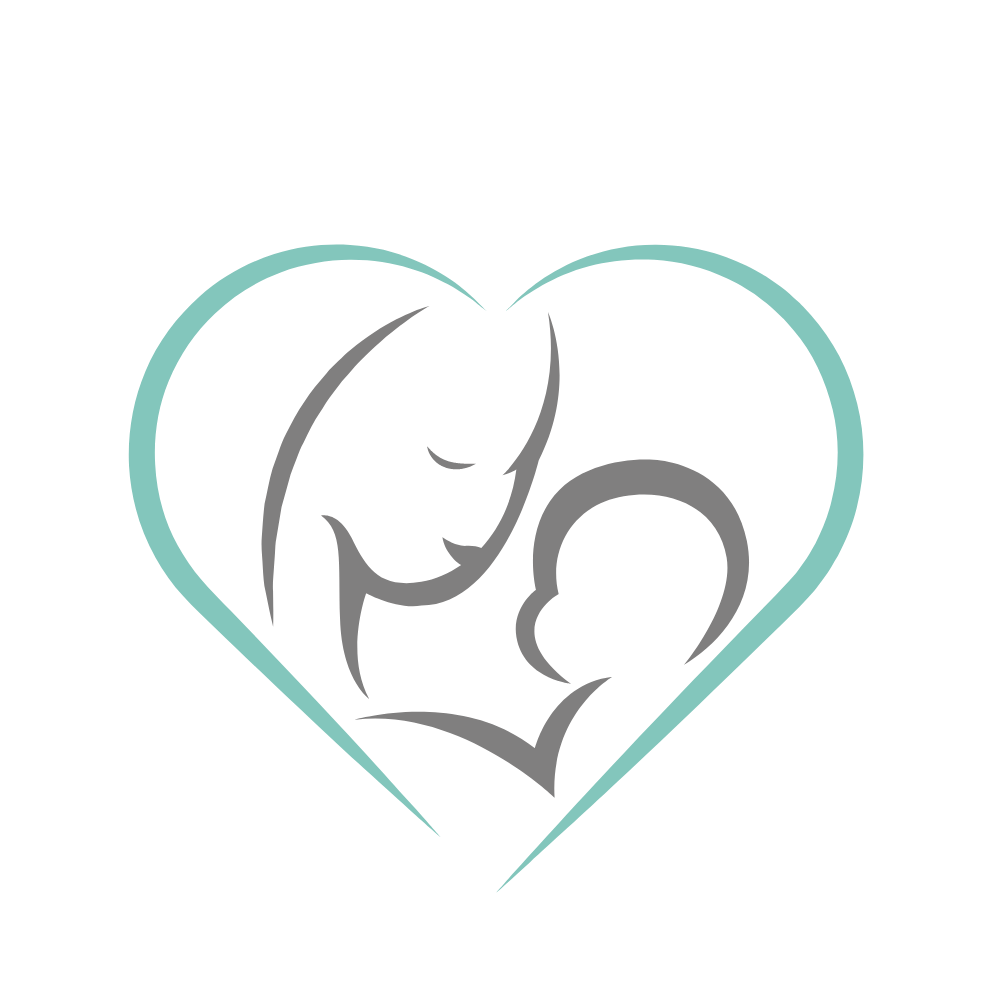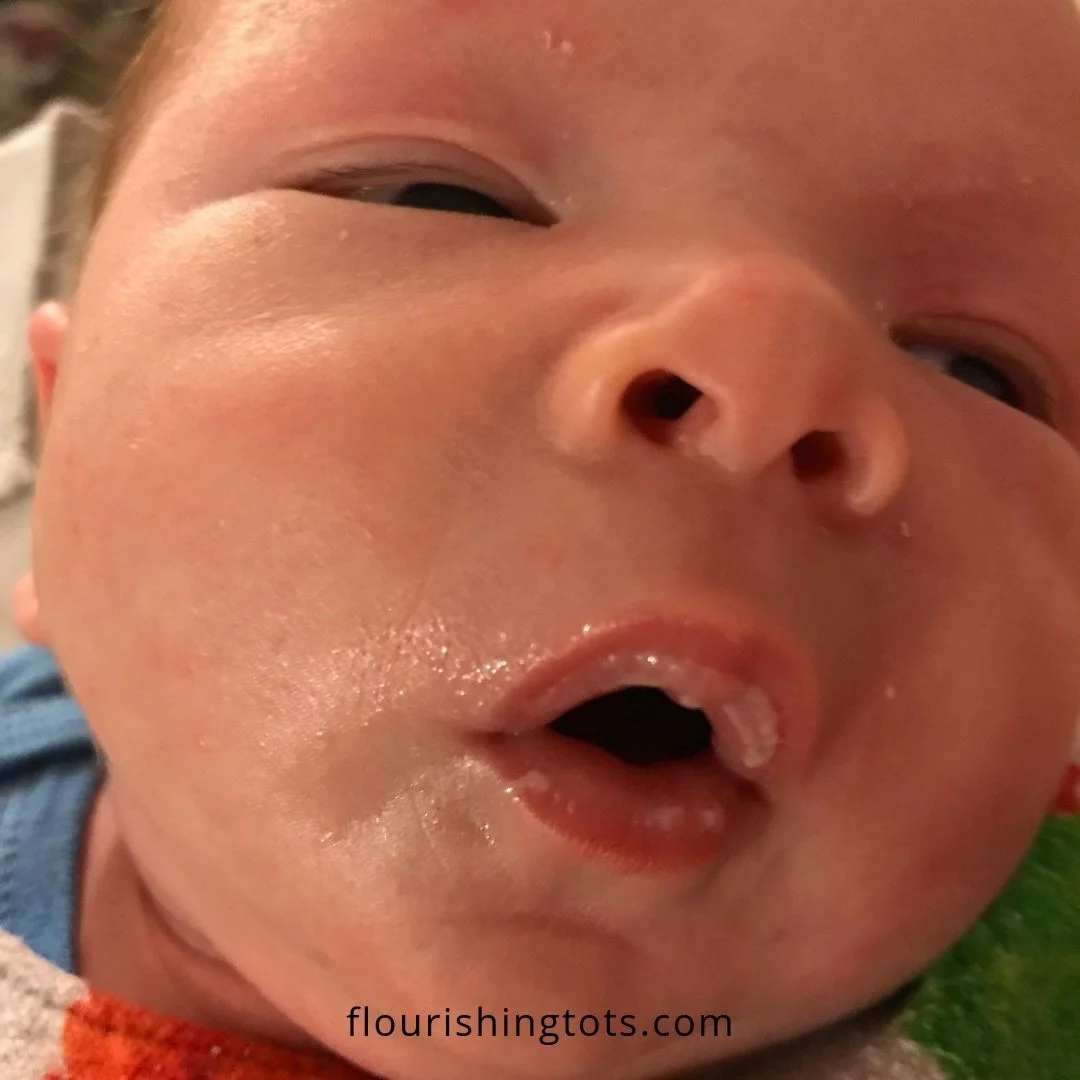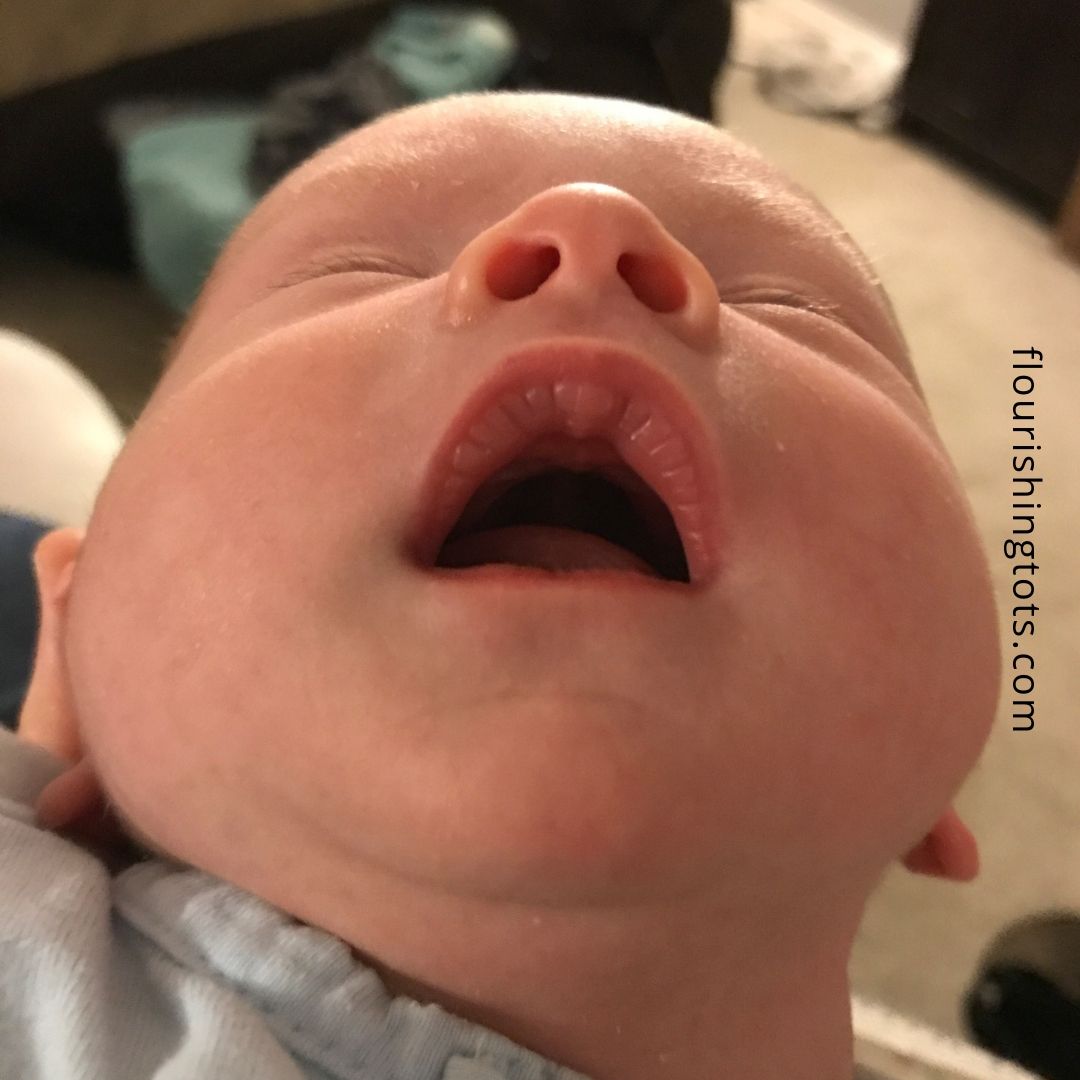Suck Blisters
Have you ever seen a baby with lip blisters or suck blisters? They’re very common but that doesn’t mean they are normal. Suck blisters are a tell-tale sign of latch problems. Babies may have two-toned lips or swollen lips after a latch instead of blisters. These also indicate latch difficulty.
Babies get suck blisters/lip changes from overusing their lip muscle (orbicularis oris). The orbicularis oris muscle is in charge of closing your lips and making a kissy face. Suck blisters don’t seem to bother babies much. Perhaps a better description for them is “suck callous.”
The 3 pictures below are all of the same baby within 24 hours of each other. One is not worse than the others; they show different presentations of the same problem.
Large central suck blister and swollen, two-toned lips prior to latching
Immediately post-latch. White portion is peeling skin.
Cobblestoning suck blisters. Note the normal tissue vs the blisters.
What does it feel like to overuse your lips? Try holding a carrot in your mouth. You may instinctively put the carrot in about 1-1.5 inches so your tongue and teeth can help support it. This gives the carrot stability so it doesn’t wiggle around. But what if your tongue couldn’t lift high enough to reach the carrot? If your teeth weren’t there, your cheeks would be supporting the sides of your tongue. What if your cheek muscles weren’t developed enough to support your tongue? What would you do?
Babies tend to hold on to the breast (or worse, nipple) with their gums and lips if their tongue and/or cheeks aren’t keeping up their end of the deal. Lactating parents and moms often (not always) report a gumming or biting sensation and it’s not pleasant! The lip muscle naturally starts working harder and creates friction with the breast. The friction is what causes the blisters. In fact, suck blisters are sometimes called friction blisters.
Here are several reasons babies overuse their lips:
Shallow latch:
This is my favorite kind of latch problem because it’s typically the easiest to fix! For some babies, we just have to alter their position at breast or help them latch slightly deeper. A deep, asymmetric (lower lip touches breast before upper lip) latch helps the breast sit further back in the mouth so the tongue can do the majority of the work, rather than the lips. This can decrease nipple pain and help the baby get more milk in a shorter amount of time.
Prematurity:
Premature babies aren’t meant to be eating by mouth yet. They’re expecting to be tube fed (umbilical cord) until 39+ weeks. Babies born 35.0-38.6 weeks gestation (late preterm-early term) have all their body parts in place and working pretty well but one of their biggest challenges is feeding. Their brains typically aren’t ready to maintain a healthy eating pattern. They’d rather be sleeping, which is great because a baby’s brain grows while they sleep…but they still need to eat.
Premies do not have well developed fat pads in their cheeks. They have missed the last weeks of pregnancy which are designed for fattening them up. The fat pads support the tongue from the side to make sucking more efficient. Without the fat pads, babies use alternative muscles, such as the lips, to maintain a latch, hence the suck blisters.
Photo courtesy of March of Dimes Foundation
Oral Restrictions:
Oral restrictions (tethered oral tissues) include tongue, lip, and buccal (cheek) ties. If the movements of the tongue, lips or cheeks (or all 3) are inhibited, a baby is going to recruit other structures and muscles to help get the job done. The lips are naturally called upon to do more work in order to hang on to the breast or bottle. This is called a compensation. It’s like a limp. If your left leg is hurt, you will rely on your right leg to carry most of your weight but over time, you’ll notice muscle aches where you didn’t know you even had muscles!
Cranial Nerve Dysfunction:
When babies are born, a lot of pressure is put on their head and neck...and this is normal! How else are babies supposed to squeeze through a vagina? Babies are also supposed to move their head and body around during delivery to help themselves be born. Sometimes they get a bit stuck in a certain position or maybe for an extended period of time (it happens in pregnancy too…parental movement is very important for Baby!) and this can put extra pressure on the baby’s body. This can also happen when a baby is pulled out (cesarean, vacuum, forceps). Proper nerve function is part of what allows muscles to do their job. If a nerve involved in sucking is temporarily squished, certain muscles (tongue, cheeks, jaw) can’t function properly which can lead to compensations.
As a lactation consultant, if I see a baby in my office who has suck blisters, I want to see the latch. Observing the latch and assessing oral function can give me a lot of information to help me determine a range of possible causes and solutions.
If you notice your baby has suck blisters it’s a good idea to schedule an appointment with an IBCLC (International Board Certified Lactation Consultant) for a full feeding assessment.
If you and your baby need feeding help and live in the Portland area, you can schedule an appointment with me. If you aren’t sure if you need a full consult, you can register for the Nourish Feeding Group to help decide if a full appointment is necessary. After the group you will get a $20 discount if you schedule a home visit.
If you live outside the my service radius, I can help you find an IBCLC in your area who has these skills.
Updated 9/17/23




